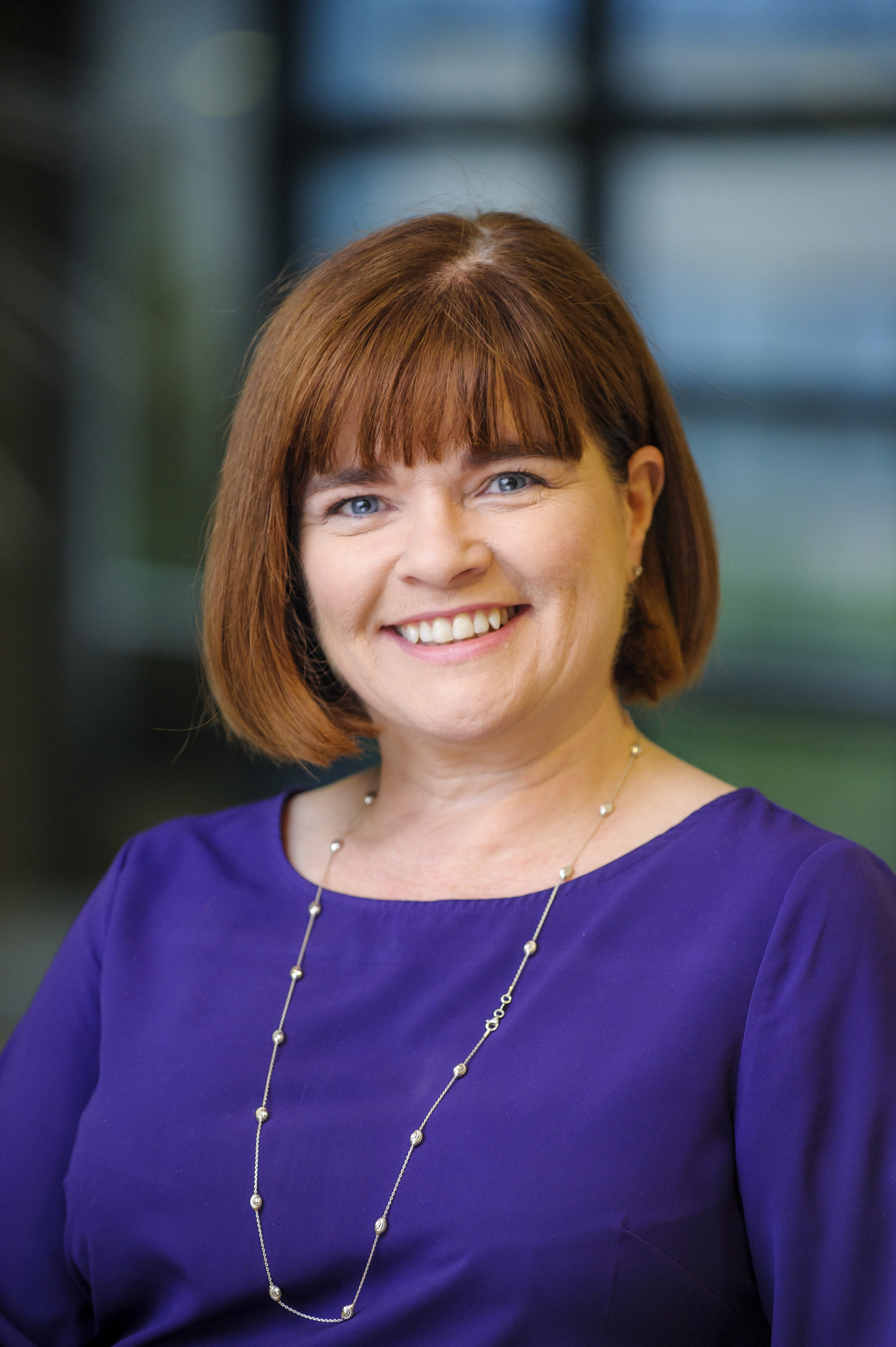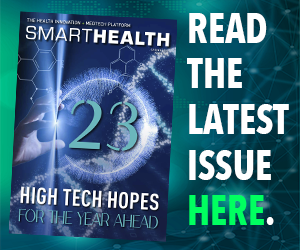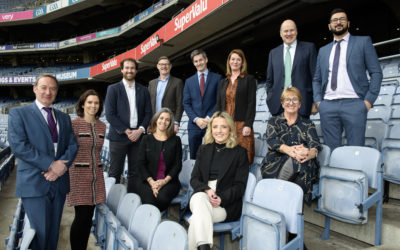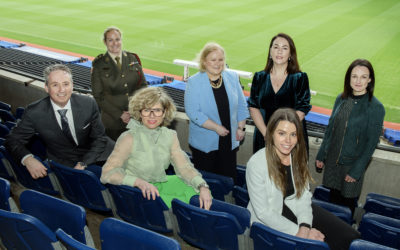Since becoming CEO of Tallaght University Hospital in 2019, research and innovation have been among Lucy Nugent’s biggest priorities and now form one of the hospital’s pillars within its five-year strategy.
With over 3,000 staff, Tallaght University Hospital is one of the country’s largest academic teaching hospitals and operates under an ethos of ‘people caring for people’.
Lucy joined TUH as Chief Operations Officer in 2014, moving into a Deputy CEO role two years later. A qualified nurse, she has previously worked in the Acute Hospitals Division as Head of Quality Assurance & Risk Management, Clinical & Patient Services Manager at Children’s University Hospital Temple Street.
Last summer she was elected President of the European Association of Hospital Managers – the first female in its 50-year history. She is also a past president of the Health Management Institute of Ireland.
How is TUH a changemaker and leader within healthcare in Ireland?
We have a strong history of innovation dating back to our founding Hospitals. Dr Francis Rynd was a physician in the Meath Hospital who developed the hypodermic needle in 1884. He did that after seeing a patient in unmanageable pain where oral painkillers didn’t work.
Our staff have continued with that enquiring mindset – focusing on how they can improve patient care. I’m surrounded by very talented people.
Tallaght University Hospital is a result of a merger of three hospitals, the Meath, the Adelaide and the National Children’s Hospital. Next year, we celebrate 25 years and going through such a large change management process such as that, has created an openness to change.
Staff genuinely have a ‘can-do’ attitude. They are always focusing on how we can do things better. The simplest definition of innovation is doing something different that adds value. We live that every day. We’re also very outward looking as a hospital providing outreach services long before Sláintecare became the focus.
We hugely support integrated care and patients should be able to easily navigate across service providers. That hasn’t been easy but I’m optimistic for the future.
We’re a voluntary hospital, a Section 38 hospital, so we have our own independent board of directors. They are very progressive in their thinking and supportive of the hospital with their expertise. They are constantly encouraging and driving us to keep moving forward, giving up a future focus rather than just on the here and now. By its very nature healthcare can be somewhat consumed by today’s challenges.
What are you excited by most right now?
Covid has taught us a lot. Overnight things transformed. The use of digital technology in health was exponentially fast-tracked. Any digital solution that empowers a patient to be the leader or conductor of their care is fantastic.
The Meath Foundation has supported the Innovation Manager post and Dr Natalie Cole started in July 2021, very quickly followed by our Innovation Fellow Dr Hannah O’Keeffe. Having people dedicated and focused on the likes of innovation is key – we also have a parallel support structure for research.
We’ve gone from having three or four projects from our ideas clinics, where staff can drop in with an idea or challenge they are trying to solve, to having over 60.
We can be criticised by industry for not being agile or quickly adopting new technologies or new ways of delivering care, and that’s valid. But equally speaking, we’ve introduced a structure process that doesn’t stymie creativity but instead provides a collaborative environment, which protects patients and supports that collaboration between health and tech.
We’re building on that and focusing on four key areas: brain health, chronic diseases, aging well and digital technology in health. In conjunction with the Tallaght University Hospital Foundation we are building to focus on innovation.
South Dublin County Council are developing an Innovation Quarter right next door to us. What we’re trying to do is create an eco system, partnering with philanthropic funding to try and develop that, focusing on our academic partnerships, we’re looking at partnering with industry and we do think that if we get involved in the co-design of tech ventures we can really bring an added dimension to improve the solution on offer.
For example, we’re partnering with GaiteKeeper, an artificial intelligence tool that measures gait analysis. They came looking from one perspective relating to Parkinson’s, but we said it could also be used in the rehabilitation poststroke.
Co-design is exciting. We’re being ambitious here and putting energy into that.
How do you overcome the biggest challenges to data and digital health solutions in healthcare systems?
There can be upfront costs for introducing digital solutions so that does need dedicated funding. That can be a challenge when you’re trying to carve it out from health funding that’s already under immense pressure.
We need to take the longer-term view that there is an upfront cost but the savings and improvements in patient care in the long term will more than pay for itself.
Other challenges are that staff are time-poor. We are trying to give some protected time to be involved in test solutions from a co-design point of view. That’s really key.
In relation to data, there’s that adage that we’re data rich and information poor. As healthcare providers we generate huge amounts of data but are we using that for greater effect?
At the moment we’re working with a third party, MedModus, a business intelligence platform, on a transformation programme. We’re looking at our data and we’re training our staff at all levels to understand the data.
If you understand it, you can make data-driven decisions. You can identify trends. You can take action. It’s connecting the dots and we’ve been very poor in health about connecting those dots.
We are really focusing on patient empowerment, because the expert in someone’s condition is themselves.
Traditionally we have brought patients into hospital, put them into pyjamas, disempowered them, told them when they are going to sleep, wake up, eat. So how can we keep people well at home but have that link into that clinical expertise. There are multiple opportunities throughout the whole tech sphere for that.
Who is impressing you most right now in the health technology area?
There are too many to mention. There is a revolution in health tech at the moment. There is an army of people out there at the moment and some fantastic products that we used during the pandemic, like video streaming glasses, iPads to communicate with patients’ loved ones, how we used Echo Shows in our Covid ICUs, which were operating theatres.
Dr Tanya Mulcahy, of the Health Innovation Hub Ireland, has set up FemTech – technology to support women’s healthcare. I think that’s fantastic.
I could be a game changer so I’m very impressed by that. Closer to home, Dr Natalie Cole, our head of innovation, she has been an inspiration. She came originally from an academic background, and worked for many years in the States. She takes the ideas created to deliverability.
Everything starts with a conversation and she listens to people, gets the ideas. She’s nurturing and fostering a culture of innovation in our organisation.
What has been the most valuable lesson you’ve learned working in healthcare?
To be brave, if you make a mistake that’s your greatest last learning. Obviously, you have to do it within a safe environment, and that’s why the stakes are greater in health. But that’s why I think it’s important to be brave.
The benefits can absolutely pay for those nervous nights when you’re concerned that things may not be going the way you want.
Every decision that we make as an organisation has that loop back to the patient. It cannot be lip service. Sometimes you have to make difficult decisions and you’re not going to be able to meet the needs of everybody but we will support patients in living the best quality of life they can live.
I worked in paediatrics for years. I think parents of children with significant health needs are true heroes. Everything is about trying to maximise the child’s life, they are in that rapid development phase of life. That’s influenced a lot of my thinking.
Then at the other end of the age spectrum is the question of are we supporting our older generation to live well at home?
My 95-year-old mother gets woken every morning by Alexa saying ‘good morning Kay, it’s time to take your 7.30am stomach liner tablet’, then she goes back to sleep and an hour later ‘Kay , it’s now time to take the rest of your tablets and get up’.
My brother moved back to Ireland from France during the pandemic, he set that up. He teched up her house. For older people, the voice is one of the last things to go, so something like Alexa is amazing. Even things like smart lightbulbs, when she is going to bed she can say ‘Alexa turn off the bedroom light’.
That means she’s not reaching over to turn off a light and risking falling out of bed. It’s about smart homes but also aging well and independently, which is a big passion of mine. I’ve seen how beneficial it can be to the individual.
What are your thoughts on technology transforming the delivery of healthcare in Ireland?
It’s an exciting time in healthcare, we’ve adopted new technology in our everyday lives and now is the time to expand it into the everyday life of healthcare. It’s an enabler.

ANATOMY OF A CEO
What has surprised you most about your role to date?
I’m very fortunate, having come from a nursing background you get life skills that are transferable both to your working environment and to your home and personal life. I’ve grown up in the health system. I’m a great believer of life-long learning, every day is a school day.
The way healthcare responded to the pandemic was not necessarily surprising but I continue to be proud of the staff I have the privilege of being CEO of. In healthcare we tend to run towards problems rather than away from them.
How did your early experiences of health shape you today as a healthcare leader?
I come from a family where my mother was the first dietician in Temple Street Children’s Hospital. She’s 95 now. My sister was also a med scientist in histopathology, so healthcare was always around me.
My father died when I was 17, he had been sick for five years and my mother cared for him at home, so I’ve always had an interest in healthcare and how things shape us.
Who have been your mentors along the way?
I come from a line of strong, independent women. My mother was told by her father ‘you can be anything you want’. She was among the second class of dieticians to graduate in this country. That was at a time when women were expected to marry and not have a career.
It’s not that I ever planned to end up as the CEO of a fantastic hospital but I’ve a philosophy of saying yes to every reasonable invitation or opportunity.
Having that flexibility in your approach to work opens you up to lots of different opportunities. I’ve worked hard but I’ve been very lucky to have been given lots of opportunities to try new things.
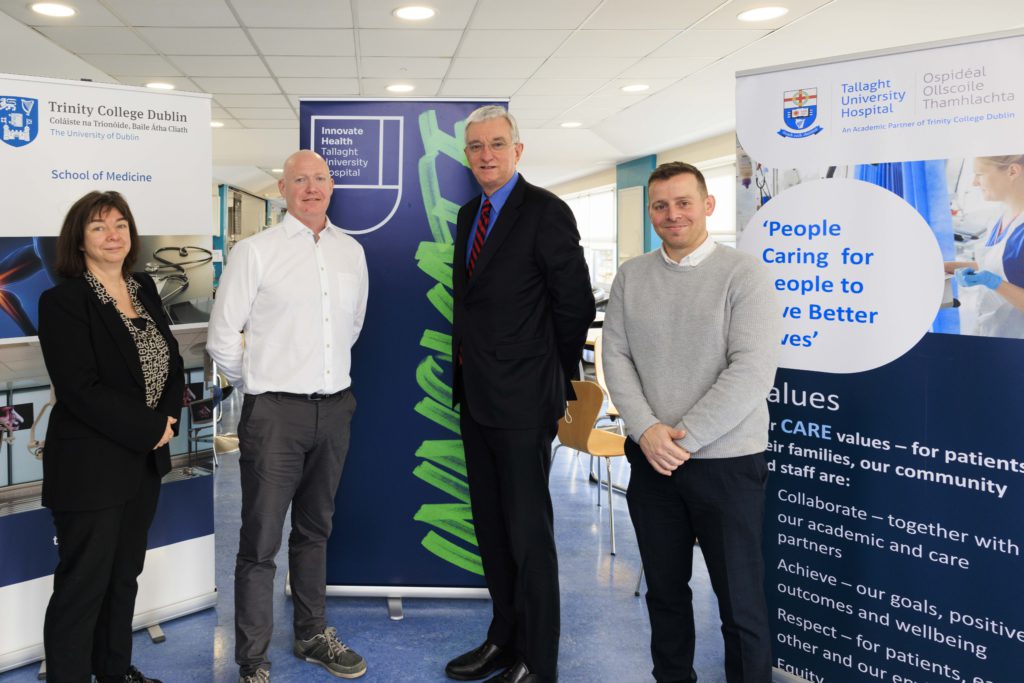
Pictured from left to right at the first showcase of the SmartCP app at TUH are Dr Natalie Cole, Head of Innovate Health at TUH, Aidan McGrenra, Patient Representative, Professor Kevin Conlon, Consultant Surgeon at TUH & Professor of Surgery at TCD and Chris Kiernan, Public Service Innovation Fund Manager
TREATING CHRONIC PANCREATITIS IN THE COMMUNITY
Tallaght University Hospital and its interdisciplinary Chronic Pancreatitis team recently showcased an innovative mobile phone app – SmartCP.
The app, supported by an innovation grant from the Department of Public Expenditure & Reform, will streamline and coordinate patient management, and enable TUH to care for patients in their homes and communities.
Dr. Natalie Cole, TUH Head of Innovate Health, said: “The work to date in developing SmartCP is a great example of industry, academia and healthcare working together to develop an enabling technology to support our clinical team and empower our patients. We are very grateful to the Public Service Innovation Fund for their support for innovative ideas such as this.”
Research has shown Ireland has among the highest numbers in Europe of those suffering from chronic pancreatitis.
TUH runs the biggest centre for chronic pancreatitis care on the island of Ireland and currently has more than 300 patients on its clinical database – many of whom live outside of Dublin.
The SmartCP project was coordinated by Professor Kevin Conlon, Consultant Surgery at TUH and Professor of Surgery at Trinity College Dublin, Dr. Sinead Duggan, a Senior Research Fellow in Trinity College Dublin and former TUH Nutrition & Dietetics Department member and Marie Egan, Clinical Nurse Specialist in TUH.

